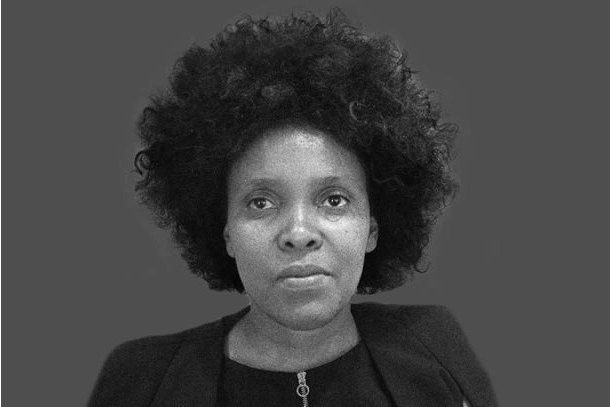Can action now help Africa’s economy after the pandemic?

Feature Highlight
Yamkela Makupula, of Diaz Reus Africa, believes so.
Africa is currently dealing with many complications regarding the COVID-19 pandemic. While many countries are currently trying to control and eliminate the coronavirus as much as possible, it has continued to have huge economic impacts domestically and internationally. One person who has been following the impact on the economy very closely is Yamkela Makupula of Diaz Reus Africa (see Attorney Michael Diaz in Miami). She recently had a chance to sit down for an interview with the South African Broadcast Corporation, where she laid out some of her ideas on what it will take for a sped-up economic recovery for most of the continent.
Early reports are grim when looking at the overall impact that COVID-19 will have in Africa. Currently, some projections show that average GDP growth for the continent could slow down to -2% in 2020. That would be a significant loss in a short period of time. Country level projections show that economic data would be worse in many African countries.
Makupula is following the entire story, trying to figure out what a proper plan would be to turn the economy around and fix the issues as quickly as possible. She believes that for the continent, it would be best for all countries to coordinate their responses and present a unified front. This, she also believes, would help the international perception of the general stability of Africa.
Like any region of the world, Africa has had its fair share of disagreements. But COVID-19 has shown that it can impact the rich and the poor; and the truth is that no country will come out of the public health cum economic crisis without having to make some necessary policy changes. Makupula thinks that collective actions will help, both within the continent and in Africa's engagement with the wider world, including in international trade with the rest of the world.
The postponement till next year of the African Continental Free Trade Agreement, which would have been launched last month, shows the scale of economic disruption caused by the current pandemic. Nevertheless, countries should be looking for solutions while preventing lasting setback. The economic impact of COVID-19 has been so severe that it could take decades for the countries that were already struggling before the outbreak to fully recover. The collaborative efforts for a fast-tracked recovery should not be limited to governments. The private sector also needs to work together and support government's efforts.
Some of the richest countries in Africa have the resources to bounce back, but instability in other countries might hold off foreign investors from investing anywhere in Africa again. Encouraging unity allows the world to have less doubt that Africa will once again be a dependable market and a source for so many resources used in global value chains of production.
Until the rest of the world feels comfortable doing business with Africa post-pandemic, it is going to be tough to fully get back to normal situations. African countries must demonstrate that they are on the cutting edge of efforts at ensuring safety and investor confidence. Anything less can be disastrous for countries that were already struggling pre-COVID-19.
Makupula is very optimistic that things will come around for Africa. She, however, points out that things can get worse before they start to get better. It could be a while before things would get back to normal. But she emphasizes that having a recovery plan would be helpful.
Other Features
-
How much is a $100 Steam Gift Card in naira today?
2026 Complete Guide to Steam Card Rates, Best Platforms, and How to Sell Safely in Nigeria.
-
Trade-barrier analytics and their impact on Nigeria’s supply ...
Nigeria’s consumer economy is structurally exposed to global supply chain shocks due to deep import dependence ...
-
A short note on assessing market-creating opportunities
We have researched and determined a practical set of factors that funders can analyse when assessing market-creating ...
-
Rethinking inequality: What if it’s a feature, not a bug?
When the higher levels of a hierarchy enable the flourishing of the lower levels, prosperity expands from the roots ...
-
Are we in a financial bubble?
There are at least four ways to determine when a bubble is building in financial markets.
-
Powering financial inclusion across Africa with real-time digital ...
Nigeria is a leader in real-time digital payments, not only in Africa but globally also.
-
Analysis of NERC draft Net Billing Regulations 2025
The draft regulation represents a significant step towards integrating renewable energy at the distribution level of ...
-
The need for safeguards in using chatbots in education and healthcare
Without deliberate efforts the generative AI race could destabilise the very sectors it seeks to transform.
-
Foundation calls for urgent actions to tackle fake drugs and alcohol
Olajide Olutuyi, Executive Director, Samuel Olutuyi Foundation, warns: “If left unchecked, the ‘death ...
Most Popular News
- NDIC pledges support towards financial system stability
- Artificial intelligence can help to reduce youth unemployment in Africa – ...
- Green economy to surpass $7 trillion in annual value by 2030 – WEF
- ChatGPT is now the most-downloaded app – report
- Africa needs €240 billion in factoring volumes for SME-led transformation
- CBN licences 82 bureaux de change under revised guidelines












